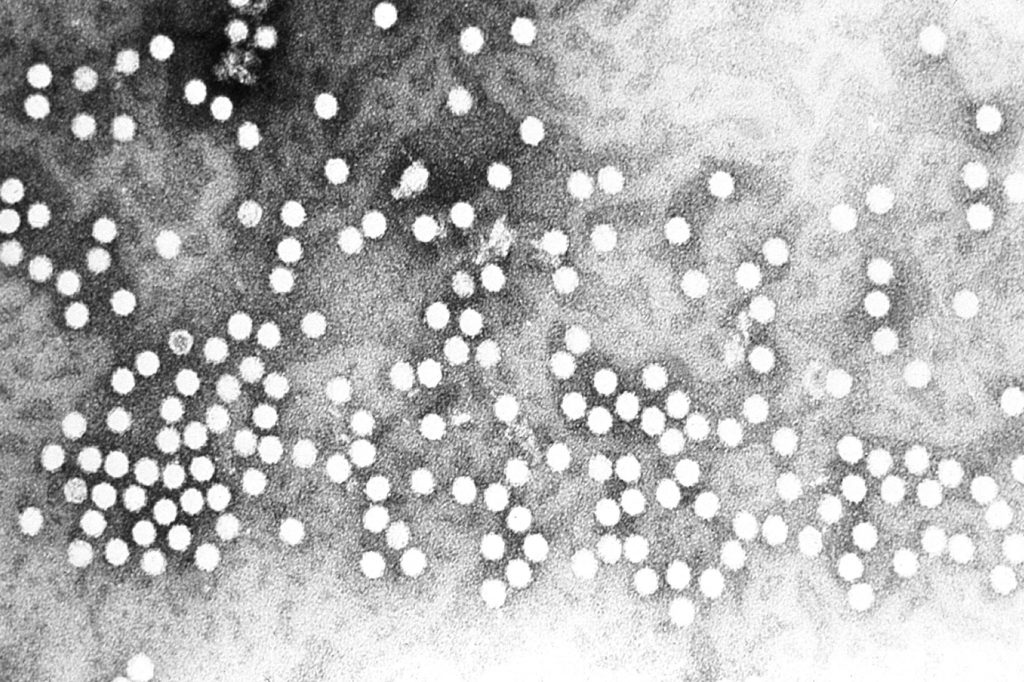There are several viruses that are implicated in breast cancer.
Mouse mammary tumor virus (MMTV; the Bittner virus) is a proven cause of breast cancer in mice, and has been identified in some human breast tumours, although it has not been proven as a definite cause of breast cancer in women.
Other viruses that have been identified in human breast tumours are the human papilloma viruses (HPVs), and Epstein-Barr (EBV). Over 90 percent of the world population is infected with the Epstein-Barr virus (EBV) but only a fraction of those who are infected actually develop a disease. Most often, the virus persists unnoticed in the body throughout a person’s lifetime – provided that his or her immune system is intact. However, there are cases where it causes various diseases, such as infectious mononucleosis, Burkitt’s lymphoma, nasopharyngeal cancer and possibly breast cancer. Certain strains of the virus may be responsible for these diseases.
The Epstein-Barr virus has been found in 25-35% of breast cancer tumours, but has not been found in benign breast tumours. EBV infection causes breast cancer cells to be more resistant to chemotherapy drugs. The EBV also activates the signaling pathways for the HER2/HER3 (human epidermal growth factor) genes, which cause breast cancer tumours to be more aggressive, causing either increased or uncontrolled proliferation, decreased apoptosis (programmed cell death), enhanced tumor cell motility, and angiogenesis (blood supply formation to a tumour).
Of 32 herbs tested, turmeric was the most effective at inhibiting the Epstein-Barr virus, causing 90% growth inhibition. Quercetin also strongly inhibits EBV.
The human papilloma virus (HPV) was present in 25 of 29 samples of breast cancer tumours and in 20 of 29 samples from the corresponding breasts.
It is possible that certain dietary patterns lead to higher estrogen, insulin and IGF-1 levels, which promotes viral replication, which initiates and promotes the cancer process, which is then further enhanced by sex and growth hormones.
All breast cancer patients should be treated with anti-viral agents, including curcumin and quercetin.
- Do viruses cause breast cancer?
- Detection of Epstein-Barr virus in breast carcinoma in Egyptian women.
- Quercetin-induced apoptosis prevents EBV infection.
- Dysregulation of HER2/HER3 signaling axis in Epstein-Barr virus-infected breast carcinoma cells.
- Presence of papillomavirus sequences in condylomatous lesions of the mamillae and in invasive carcinoma of the breast.
- The possible involvement of virus in breast cancer.
- Epstein-Barr virus in breast carcinoma in Argentina.
- Inhibitory effect of herbal remedies on 12-O-tetradecanoylphorbol-13-acetate-promoted Epstein-Barr virus early antigen activation.




